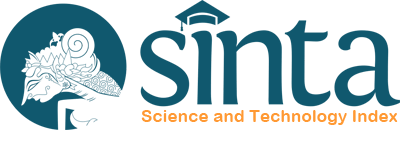ANALISIS KEKAMBUHAN ORANG DENGAN SKIZOFRENIA MENGGUNAKAN METODE PARTIAL LEAST SQUARE STRUCTURAL EQUATION MODEL
Abstract
Schizophrenia is a psychotic disorder characterized by major disorders in the mind and emotions. People with schizophrenia (ODS) can experience recurrence if they do not receive proper care. The latent variable used in this study was ODS reccurence. One method that can determine the relationship between latent variables and latent variables with the indicator is the partial least square structural equation model (PLS-SEM). This study was conducted to see how the structural model of ODS recurrence data and to know the factors that most influence ODS recurrence. The results of this study concluded that the resulting model was good enough with a large R-square value of 0.8577, but not all variables used in this study had a significant effect on ODS recurrence. ODS recurrence is significantly influenced by family support and community social support variables. While medication compliance and physician control regularity will not have a significant effect without family support. The worse treatment of families and communities around ODS recurrence will occur more often.
Downloads

This work is licensed under a Creative Commons Attribution 4.0 International License.

This work is licensed under a Creative Commons Attribution 4.0 International License.









